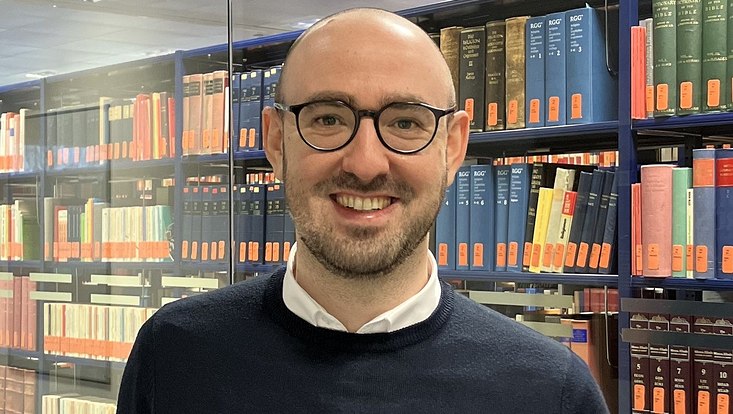Stay in the loop
You want to stay up to date about the HRA’s offerings? Follow us on LinkedIn or sign up for the HRA newsletter!
Photo: HRA
3 May 2023

Photo: Messingschlager
In the doctoral phase, you dive deep into your own topic while in many cases already publishing diligently and gaining teaching experience. All of this is often so time-consuming that other activities become, at least at times, a minor matter for many doctoral candidates.
I am especially committed to supporting young people from educationally disadvantaged backgrounds—on their path towards university study, during their studies, and when starting their careers. I do this by heading 2 groups of volunteers in Hamburg— for the ArbeiterKind.de organization, I have online office hours to offer university and high school students in Hamburg a place for all their questions about studying. I also set up the ApplicAid e.V. Association, a group of volunteers who, among other things, provide information about scholarships and motivate people to apply.
There are many reasons: The demand for these kinds of services is immense; even though there really aren't many out there. So it’s about taking responsibility. And it’s worth it: when those seeking advice have a plan or at least some clarity at the end of a conversation, we’ve achieved something. So we make a small but important contribution to greater educational justice—what a great feeling! And I am, of course, especially happy that I am now asked to talk about the topics of educational advancement and classicism.
As odd as it sounds, you also need to draw clear boundaries when it comes to this kind of commitment: 2 hours per week is definitely enough to make a difference. There are great organizations and associations like ArbeiterKind.de or ApplicAid e.V. where you can make a contribution in many areas even if you don't have much time to spare. Your motto should be "Start small but stick at it"—if everyone did that, the world would be a better place.
From June 5 to 9 June, 2023, the Equal Opportunity Unit, together with many other actors at the Universität Hamburg, will offer an extensive program for the ninth Diversity Days (digital, hybrid, and in person).
On 9 June Stefan Messingschlager is part of our online event on networking for first gen academics!
You want to stay up to date about the HRA’s offerings? Follow us on LinkedIn or sign up for the HRA newsletter!